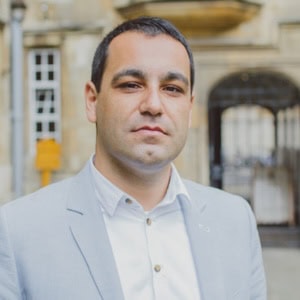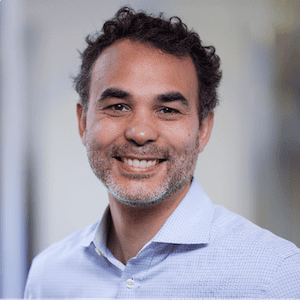-
There’s No App to Fix Farming – A Lifelong Smallholder Shares What Social Business is Getting Wrong
When it comes to farming, the social business world is getting it all wrong, says Gaita Kariuki, a lifelong smallholder and CEO of Selina Wamucii, a Kenya-based fresh produce startup. From overselling the impact of off-grid solar and access to loans, to underestimating the importance of middlemen, he says much of the social business sector's approach to agriculture makes little sense to smallholders.
- Categories
- Agriculture, Social Enterprise
-
Beyond ‘Send Money Home’: The Complex Gender Dynamics Behind Mobile Money Usage
In Kenya, gender doesn’t factor as strongly in accessing mobile money accounts as it does for formal sector accounts. This is surprising because in Africa women are less digitally connected than men. However, the networked nature of mobile money explains why more women adopt the technology. Susan Johnson writes that financial inclusion analysis and policy must factor in how women use their money, how it connects them to family and how financial services can facilitate this.
- Categories
- Finance, Technology
-
The UBI Debate: What We Know – and Don’t Know – About Universal Basic Income
Policymakers from Nairobi to Silicon Valley have lately been considering the same approach to reducing poverty: universal basic income (UBI). Evidence from ongoing randomized evaluations will be key to understanding the impact of UBI, and how this disruptive concept might fit into a broader portfolio of social policies. In the meantime, there is much we already know from impact evaluations of related interventions that can help make sense of the debate. Alison Fahey at J-PAL provides an overview.
- Categories
- Uncategorized
-
Can Digital Credit Outperform Microcredit in the Developing World?
Microfinance has been hailed as a transformative force for poor households and entrepreneurs in emerging markets. But recent evidence suggests it is not the silver bullet it was once thought to be. Meanwhile, mobile phones have become ubiquitous in most developing countries, and Alexandra Wall, Natasha Beale and Carson Christiano explore whether digital credit can do a better job than microcredit in meeting the needs of the underserved.
- Categories
- Impact Assessment, Investing
-
Digital Isn’t Always the Answer: Building Choice into Financial Inclusion Solutions for Smallholder Farmers
Smallholder farmers often live in remote villages, located hours away from towns and cities where they might be able to access consistent mobile networks, bank accounts or other formal financial access points. So while many farmers are curious about the idea of receiving the payment for their cash crops in digital formats, the options for them to use that digital currency are limited. Instead of pushing technology for technology’s sake, financial inclusion projects ought to seek diverse solutions that are appropriate and accessible for customers based on their needs.
- Categories
- Agriculture
-
There is Such a Thing as Too Much, Too Fast: Avoiding ‘Mismatched Expectations’ in Off-Grid Energy Investing
A recent post by impact investing firm Ceniarth on the "Energy Access Hype Cycle" has generated considerable discussion, prompting critical responses from fellow impact investors Persistent Energy Capital and the off-grid lighting trade organization GOGLA. With this post, writers at the IFC join the discussion, analyzing the effect of rapid growth rates, high levels of consumer financing and operational efficiency on the liquidity of solar home system providers.
- Categories
- Energy, Investing, Technology
-
In Impact Investing’s Rush to the Mainstream, Who Are We Leaving Behind?
After a long march toward mainstream acceptance, many in impact investing are claiming victory. But a new report by Oxfam and Sumerian Partners argues that the sector should focus on the needs of the businesses working to reduce poverty rather than on the investors who stand to benefit from their work. In other words, it's time to stop pretending that investors seeking a pure market return can tackle the most complex global challenges in high-risk markets.
- Categories
- Investing
-
An Impact Investor Urges Caution on the ‘Energy Access Hype Cycle’
Ceniarth, an impact investor, has been actively engaged in the energy access sector since 2014. But now it's reducing its exposure to the venture-backed, solar home system segment of this market while shifting its strategy toward enterprises – for-profit, nonprofit and hybrid – that are finding the most capital-efficient ways to reach rural customers. Here, three principals in the firm candidly explain why they are reassessing their approach.
- Categories
- Energy, Environment, Investing










